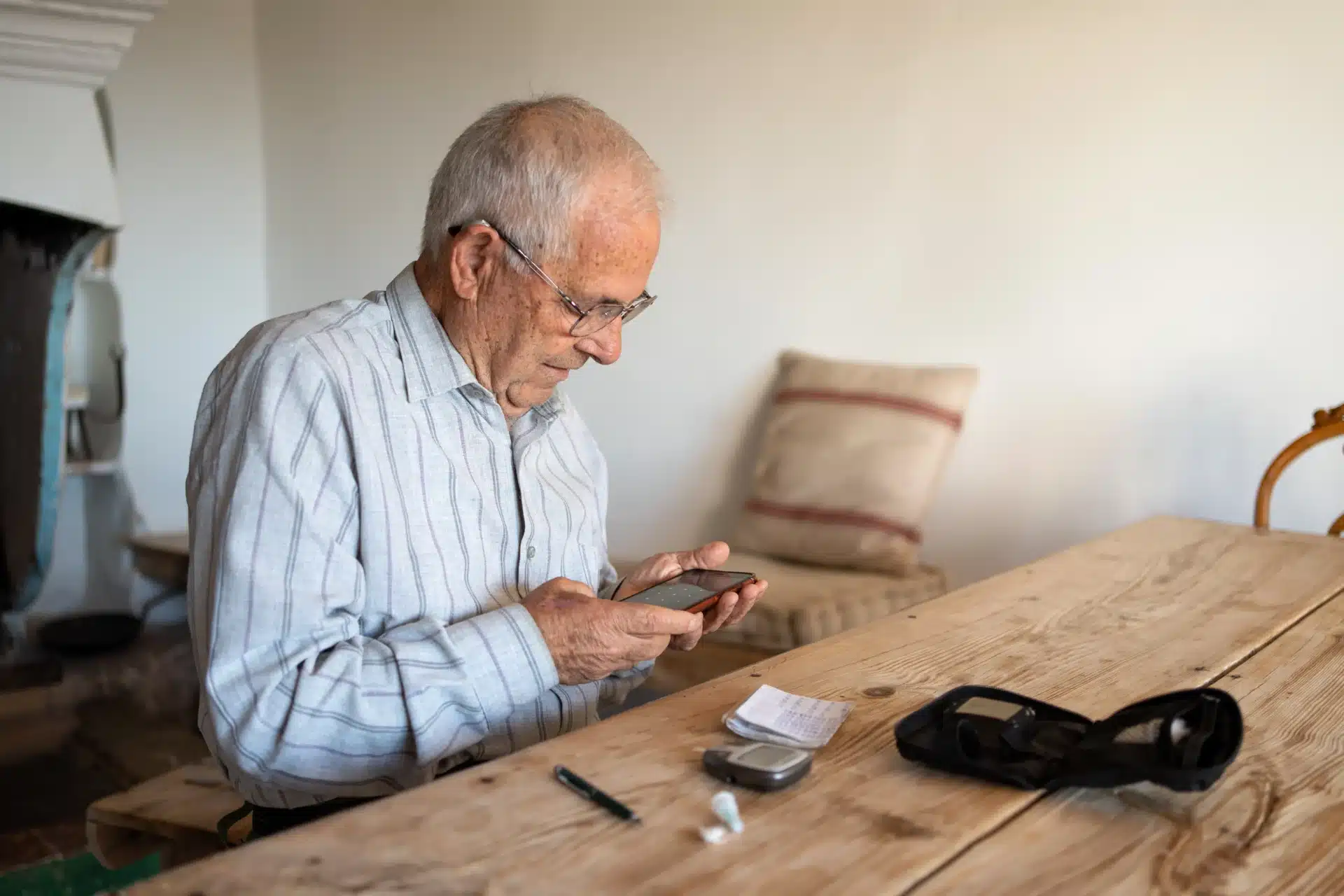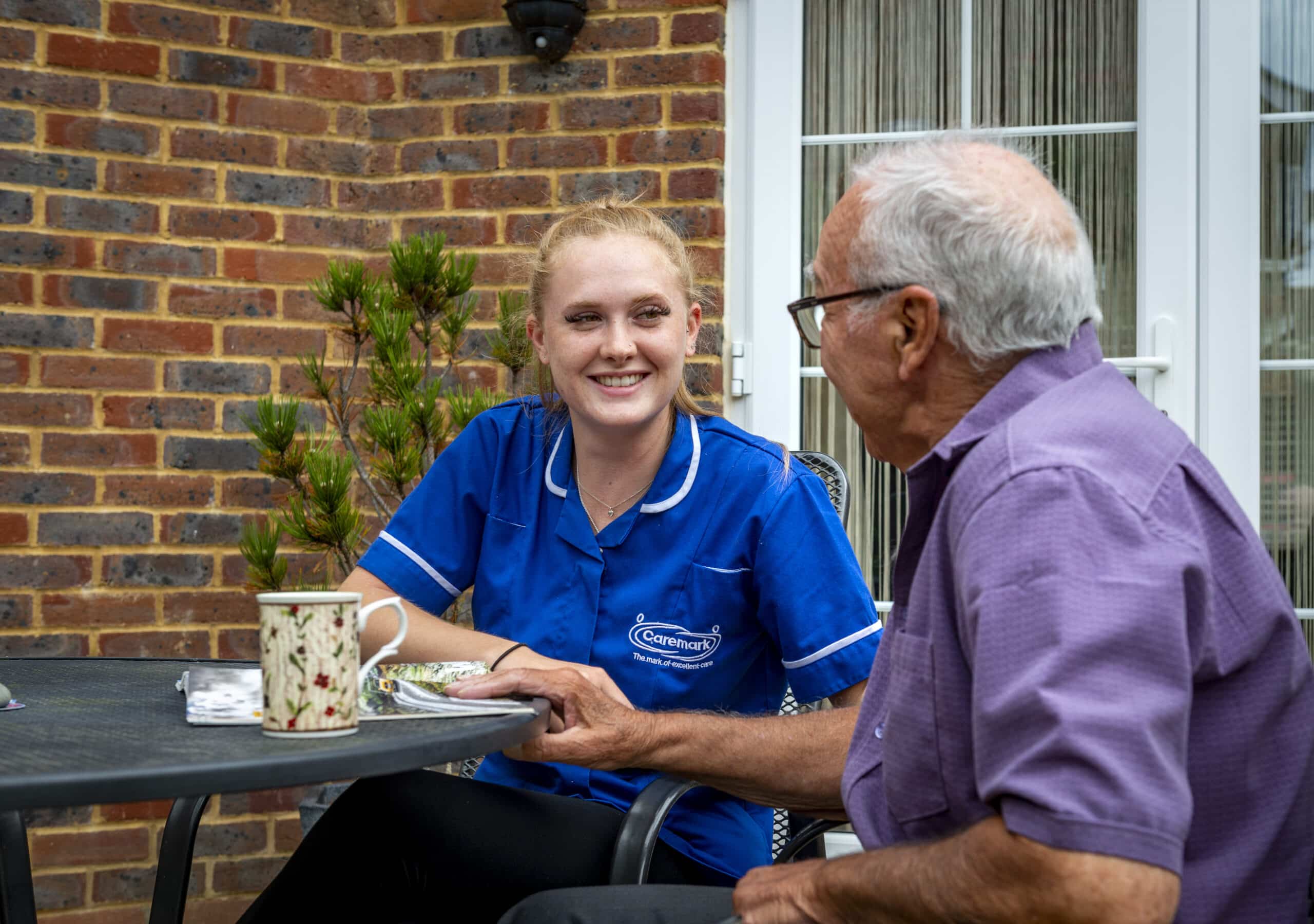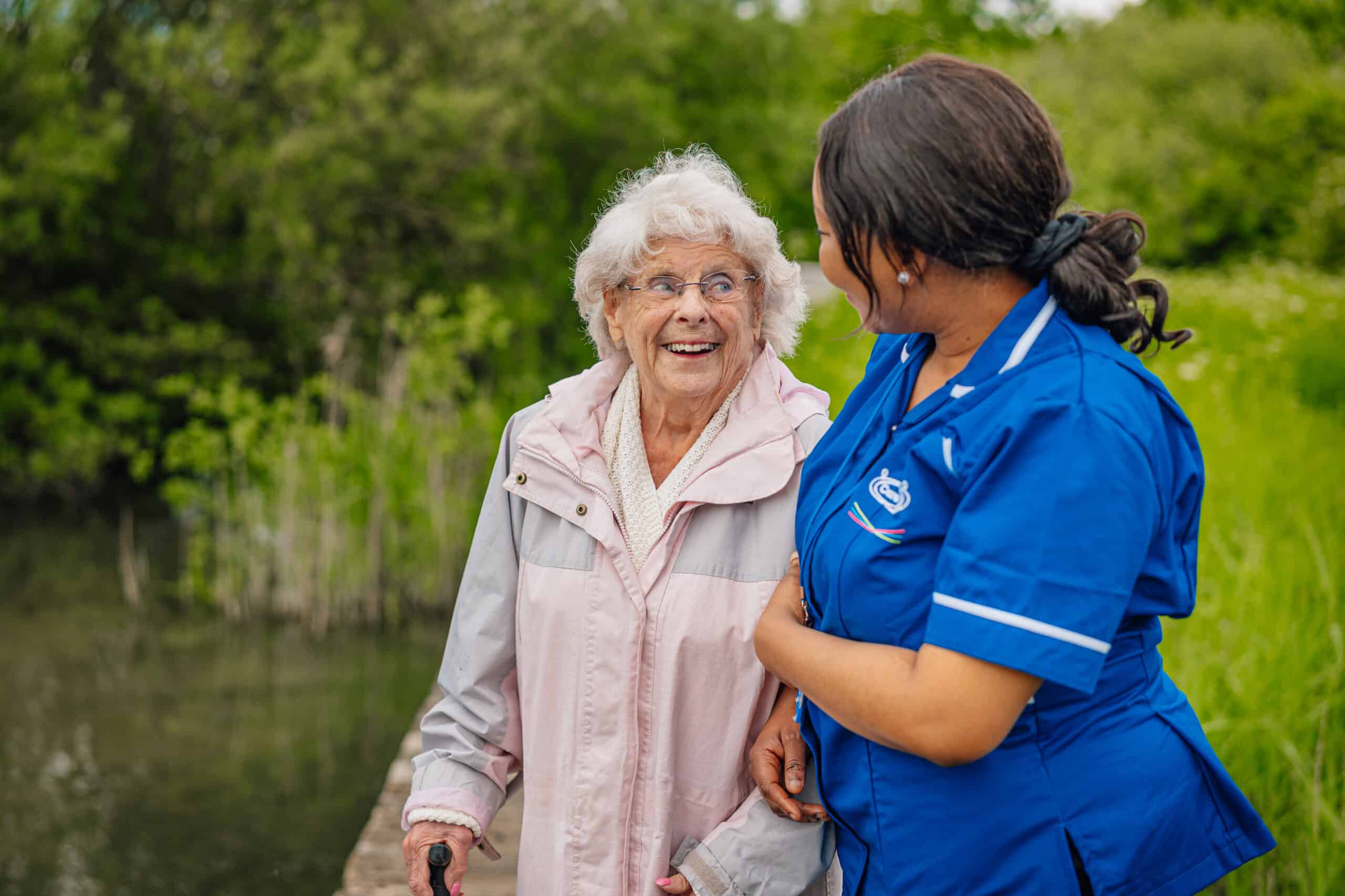A Guide to Diabetes in Older People

As people age, the risk of developing Type 2 Diabetes rises. Changes in mobility, memory, and overall health can make it harder to stay active and manage daily routines. But with the right steps, it’s possible to reduce the risk and stay well. To do so, it’s important to understand what diabetes in older people is like and how to avoid complications from diabetes in elderly people.
Diabetes in Older People
At Caremark, we know the importance of person-centred care that supports older people to live safely and independently at home. With over 8,000 customers across the UK, we are proud to support individuals living with diabetes and other long-term conditions. Hence, we provide diabetes care to improve the lives of our customers.
Older people with diabetes require a tailored approach. From medication management to meal preparation and mobility support, our trained care assistants provide compassionate, professional care that makes a real difference.
Symptoms of Diabetes in Elderly People
Recognising the signs of diabetes in elderly people can be difficult, as symptoms may be mistaken for normal signs of ageing. However, early detection is key to preventing complications and improving long-term health outcomes.
Common symptoms include increased thirst, frequent urination, fatigue, and blurred vision. Others may notice unexplained weight loss, confusion, or slow-healing wounds. Recurrent infections are also a red flag, especially in older adults.
Older people may experience hypoglycaemia (low blood sugar) with fewer warning signs. This can lead to confusion, falls, or even unconsciousness. It is also especially dangerous for those living alone.
If you or a loved one is showing any of these signs, speak to a GP or healthcare professional.

Diabetes-Related Health Risks in Older People
Living with diabetes can increase the risk of several serious health issues. For older people, these risks are often more severe and may develop faster
For example, diabetes can lead to heart disease and kidney damage. It can cause vision loss, including conditions like diabetic retinopathy. It can also cause nerve damage, which may result in pain, numbness, or mobility issues. In some cases, untreated diabetes can lead to infections that need medical intervention.
Cognitive decline is another concern. Studies have shown a link between diabetes and an increased risk of dementia in older adults. At Caremark, our care assistants help to maintain quality of life.
How to Avoid Diabetes in Older People
You cannot prevent type 1 diabetes. But type 2 diabetes (the most common form in older people) is preventable through lifestyle changes and regular health monitoring.
A healthy, balanced diet is one of the most effective ways to reduce the risk. Meals should include whole grains, fruits, vegetables, and lean proteins. They should also limit processed foods and sugar. Staying active is also key. Even gentle activities like walking or chair-based exercises can improve insulin sensitivity.
Practical Ways to Reduce the Risk of Diabetes in Older People
- Eat well: Choose fresh, unprocessed foods and reduce sugar intake.
- Stay active: Aim for light daily movement, such as walking or stretching.
- Maintain a healthy weight: Even small weight loss can make a big difference.
- Drink plenty of water: Staying hydrated helps regulate blood sugar.
- Attend regular check-ups: Early detection is key to prevention.
The NHS Diabetes Prevention Programme offers support for those at risk, and your GP can also provide advice.
At Caremark, we support these healthy habits through our home care services. We help with meal preparation, wellness checks and routine monitoring.

Supporting a Loved One with Diabetes
Caring for an older family member with diabetes can feel overwhelming, but small, consistent actions can make a big difference. Helping with meal planning, encouraging routine, and ensuring medication adherence are all essential. It’s also helpful to watch out for signs of low blood sugar and keep emergency contacts accessible.
If you’re unsure where to start, professional home care support can provide peace of mind. This could be a few hours a week, or full-time care.
How Caremark Can Help Older People with Diabetes
At Caremark, we understand that older people deserve care that empowers them to live well with diabetes. Our tailored diabetes care plans cater to each individual’s needs, preferences, and lifestyle.
Here’s how we support our customers:
- Helping with medication management
- Preparing nutritious meals
- Supporting mobility and exercise
- Monitoring for early signs of complications
- Offering companionship

What Caremark Can Do For You
At Caremark, we provide high-quality, professional care that helps individuals live empowered lives. Our kind, trustworthy care assistants are key to our tailored care. Our customers are at the heart of everything we do, so we want to support every one of their needs to manage their conditions.
Want to learn more about the care services we provide? Get in touch and discover how we can support you or someone you love. From diabetes care to dementia care, we are here to help.